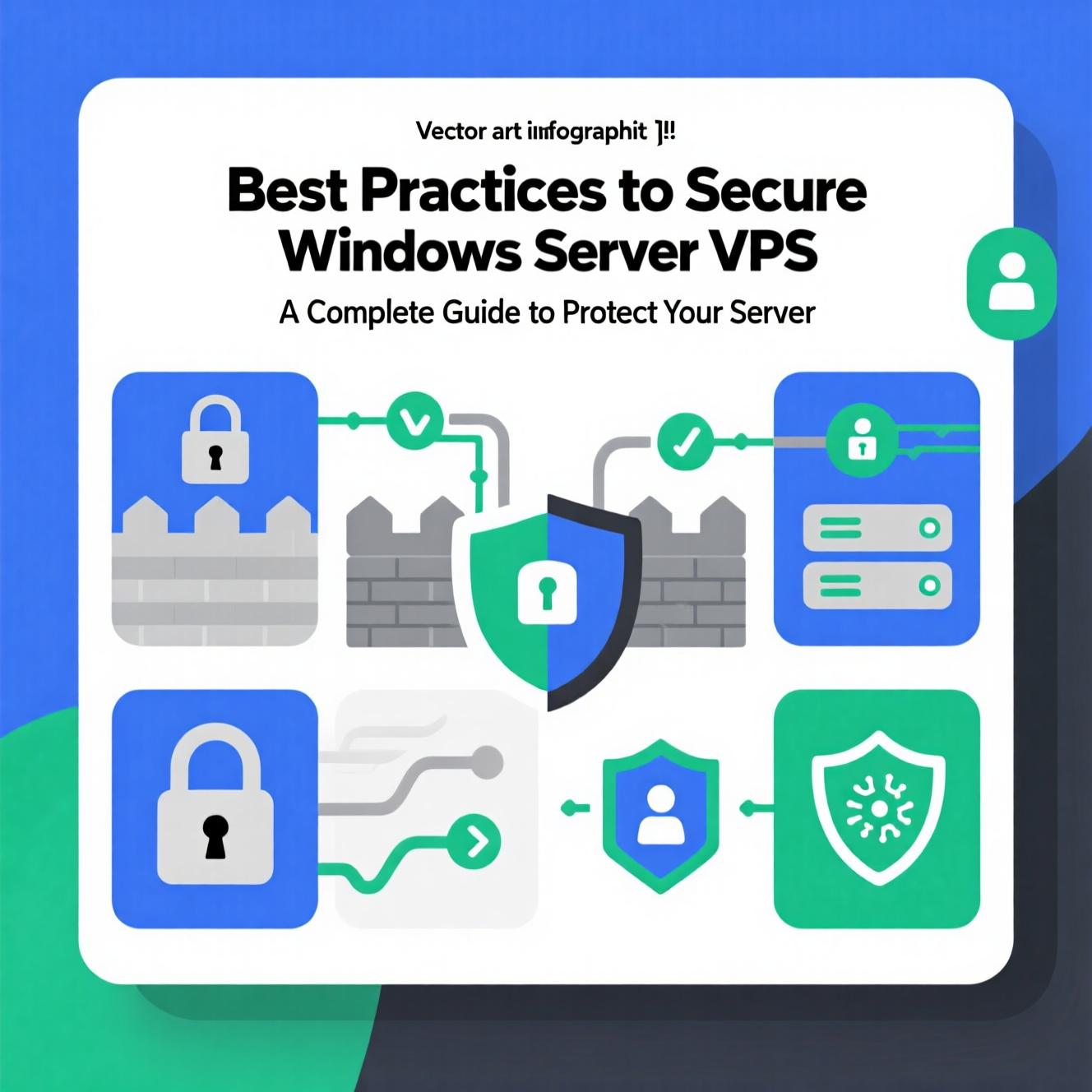Best Practices to Secure Windows Server VPS: A Complete Guide to Protect Your Server
Running a Windows Server VPS gives you powerful performance, high flexibility, and the ability to run applications or websites professionally. However, all these advantages can collapse in a moment if your server isn’t properly secured. Even a small vulnerability can be an entry point for hackers, and neglecting updates or security configurations could expose your data to breaches or loss.
That’s why you need a clear plan to secure your VPS—starting with basics like firewalls and updates, and moving to advanced steps like protecting RDP against brute-force attacks. In this guide, we’ll explore in detail the best practices for securing your Windows Server VPS.

Enable Firewall and Windows Defender
Your firewall is the first line of defense. Without it, traffic flows in and out of the server without any inspection—meaning attackers could easily exploit open ports or unprotected services.
Activate Windows Defender Firewall and configure rules to only allow trusted traffic. For example, if your server is hosting a website, only permit HTTP/HTTPS connections.
Enable Windows Defender Antivirus or use a third-party tool for stronger protection. These programs add an extra shield against viruses, trojans, and spyware.
Regularly review firewall rules to disable unused services. Every unnecessary open service is a potential entry point for attacks.
Don’t forget Outbound Rules, not just inbound, to prevent malicious programs from sending data outside if a compromise occurs.
In short, Windows Firewall and Windows Defender are not optional—they’re the foundation of securing your server.
Apply Security Updates
One of the biggest mistakes administrators make is ignoring security updates. Cyberattacks often exploit known vulnerabilities, and Microsoft releases patches regularly to fix them.
Enable Windows Update so the server automatically receives updates.
If you’re managing a production environment, schedule updates during low-traffic hours to avoid disruption.
Install critical security patches immediately, as hackers often target these vulnerabilities quickly.
Don’t forget to update the software running on your server (databases, CMS, etc.). Sometimes third-party software can contain even bigger security holes than the OS itself.
By keeping up with updates, you greatly reduce the chances of exploitation and ensure your VPS always runs with the highest level of security.
Secure RDP Against Brute-Force Attacks with IP Filtering
Remote Desktop Protocol (RDP) is the primary method for accessing a Windows VPS remotely. However, because it’s so common, it’s also a top target for brute-force attacks, where attackers try thousands of password combinations until they succeed.
Here’s how to secure your RDP access:
Use IP Filtering to restrict RDP access to specific IP addresses (like your device or trusted network). Any request from an unknown IP will be denied.
Change the default RDP port (3389) to a random, less common port. This won’t stop attacks entirely but reduces automated scans.
Enable Account Lockout Policy so accounts are locked after a set number of failed login attempts. This stops repeated guessing attempts.
Use strong, complex passwords, and enable two-factor authentication (2FA) if available for an extra layer of protection.
By following these steps, you dramatically decrease the chances of a successful brute-force attack on your VPS.
Conclusion
Securing your Windows Server VPS is an ongoing process, not a one-time task. Enabling the firewall and Windows Defender provides a strong first line of defense, applying updates closes security gaps, and protecting RDP ensures your main entry point remains safe.
By implementing these practices, you’ll keep your data protected, prevent cyberattacks, and ensure your server runs smoothly and securely. Remember the golden rule of cybersecurity: prevention is always cheaper and easier than fixing a breach after it happens.
هل تحتاج إلى Windows VPS سريع وآمن وبسعر مناسب؟
شركة EgyVPS بتوفرلك سيرفرات ويندوز جاهزة للاستخدام فورًا.
تواصل معنا عبر: 201001197157+
أو زور موقعنا: https://egyvps.com